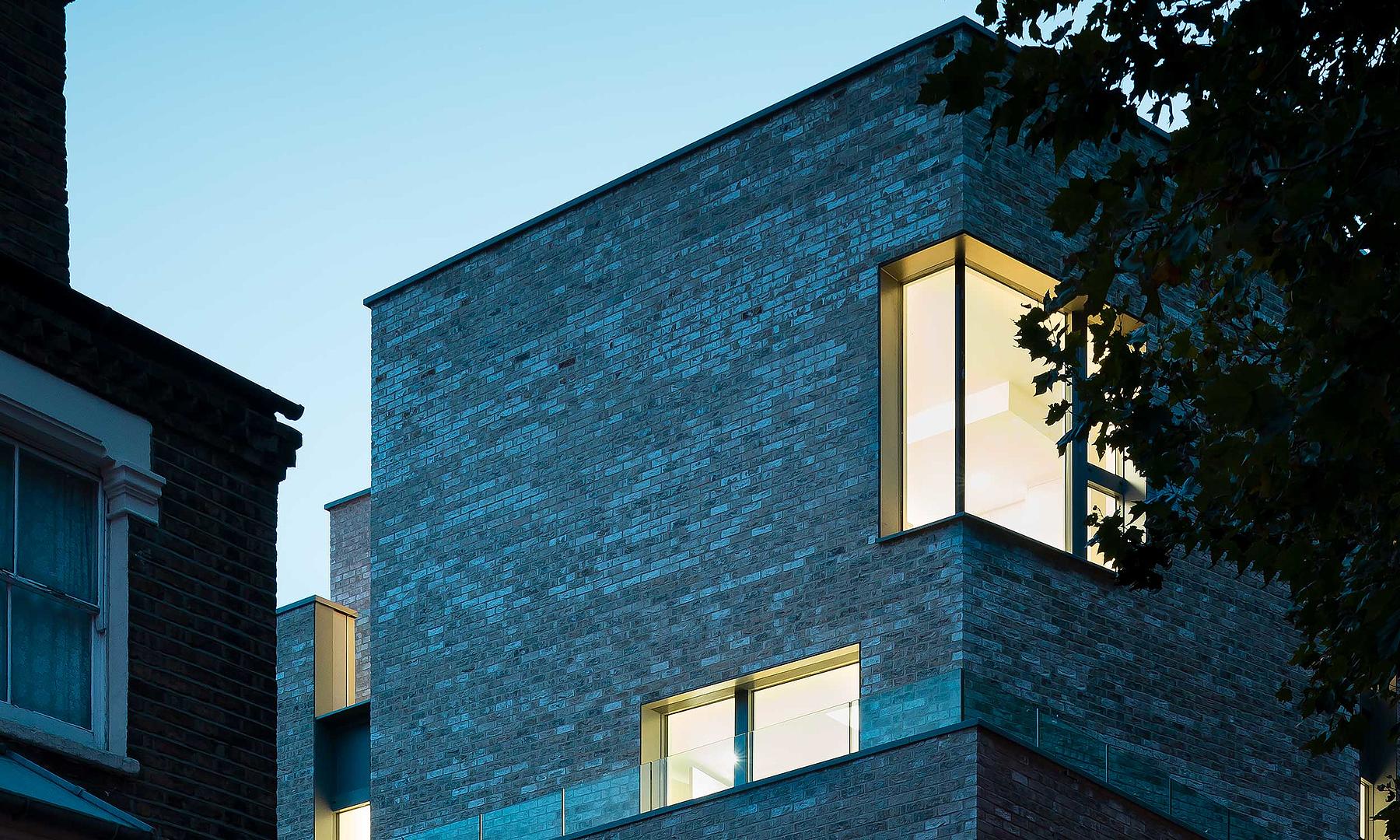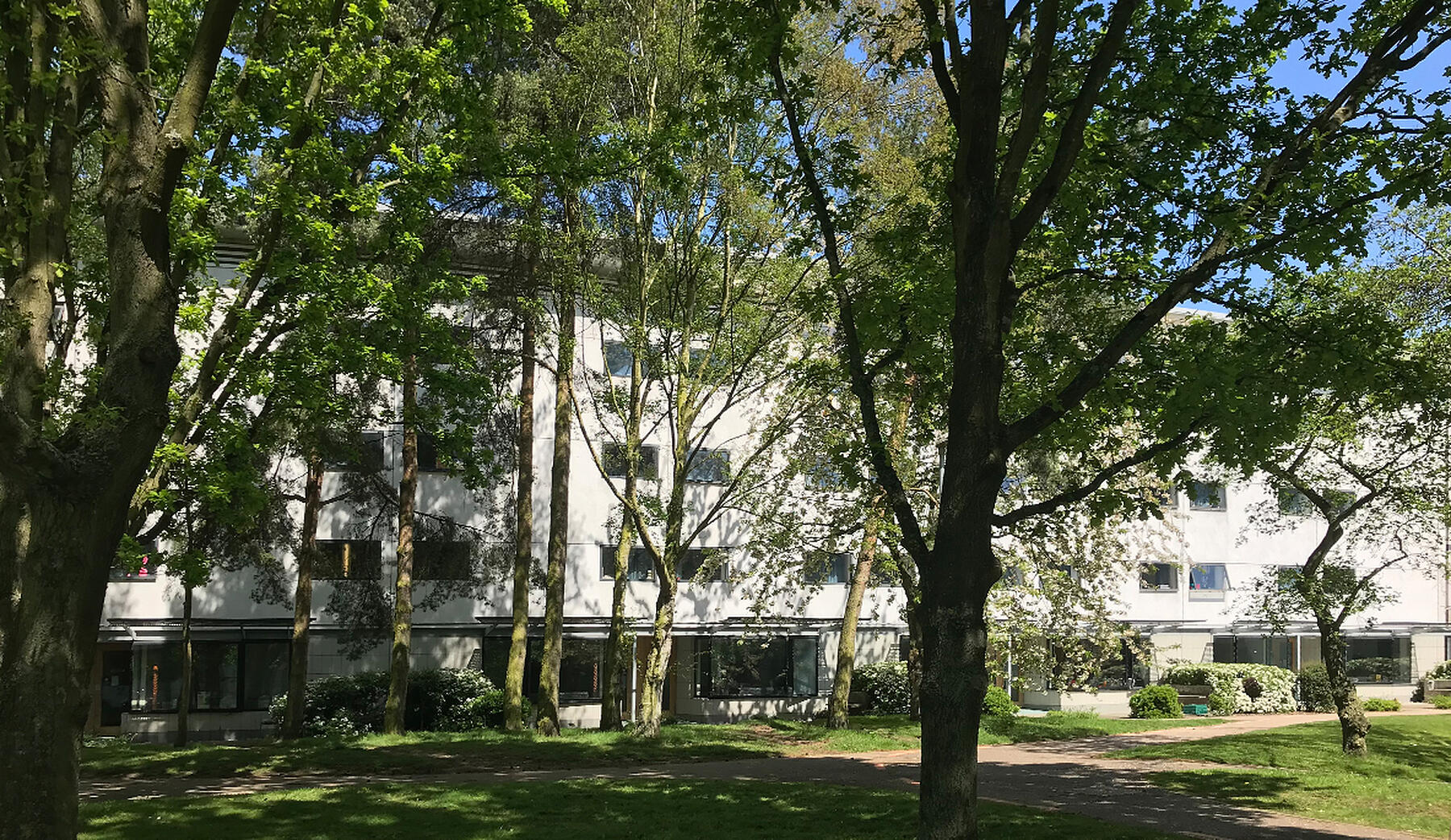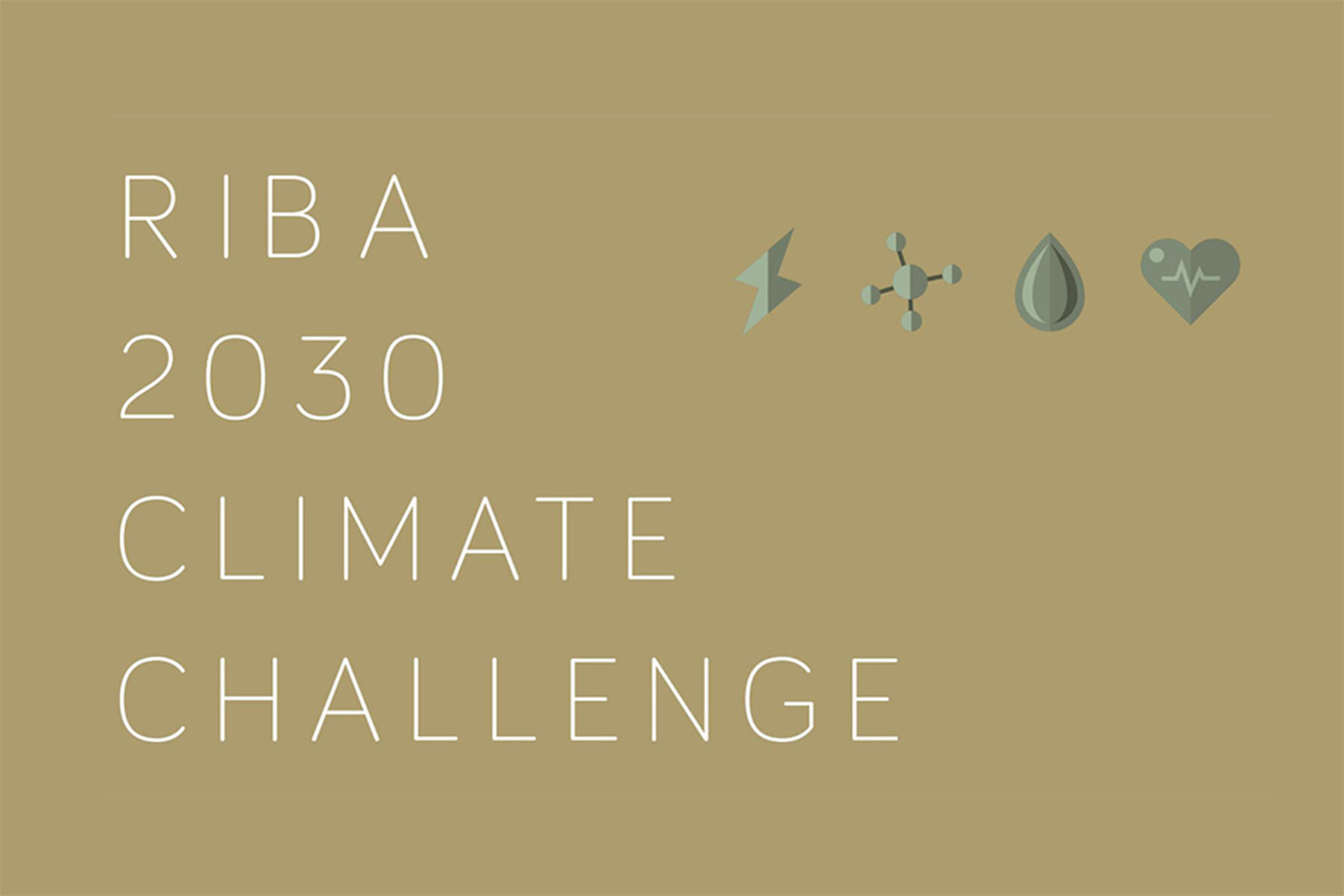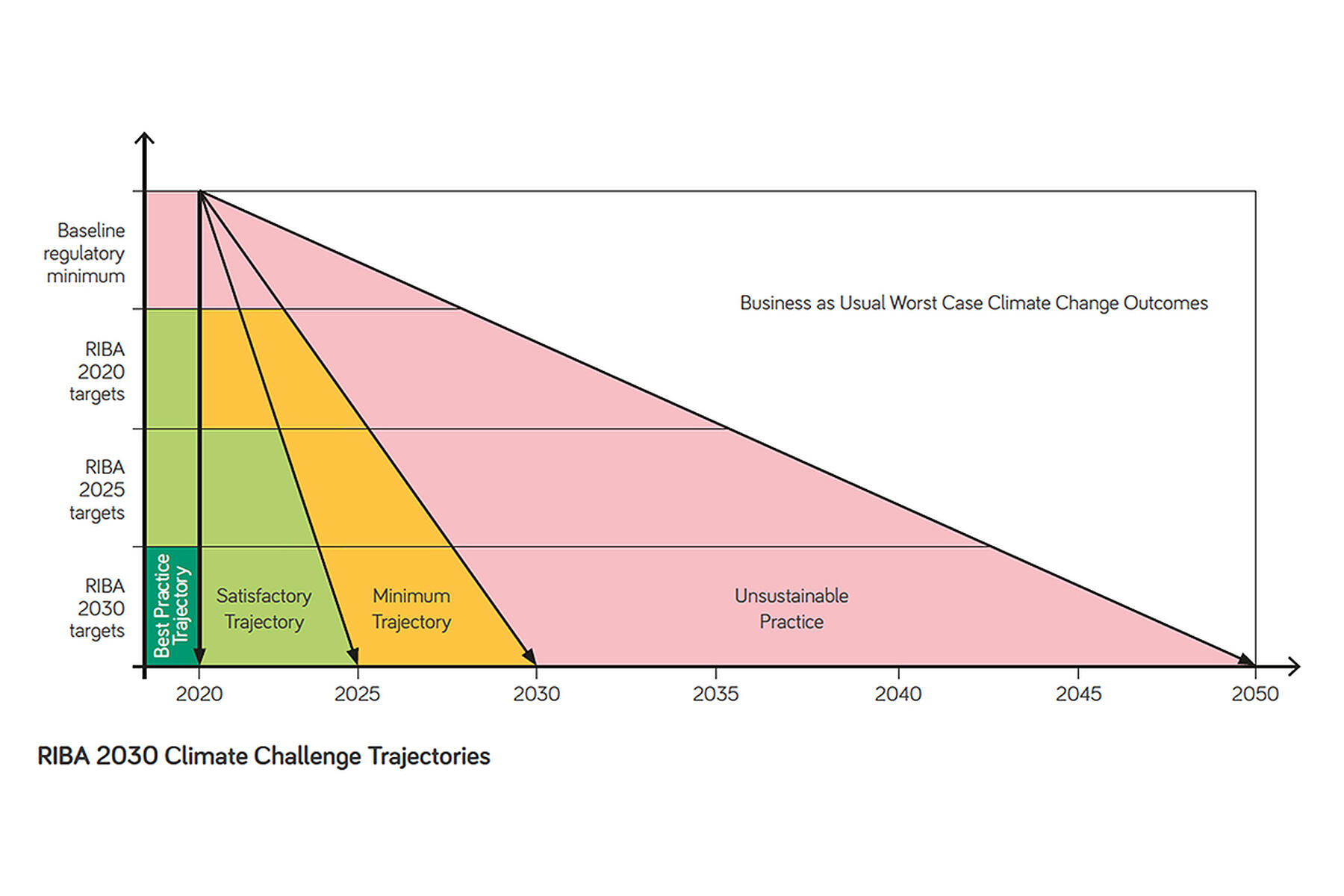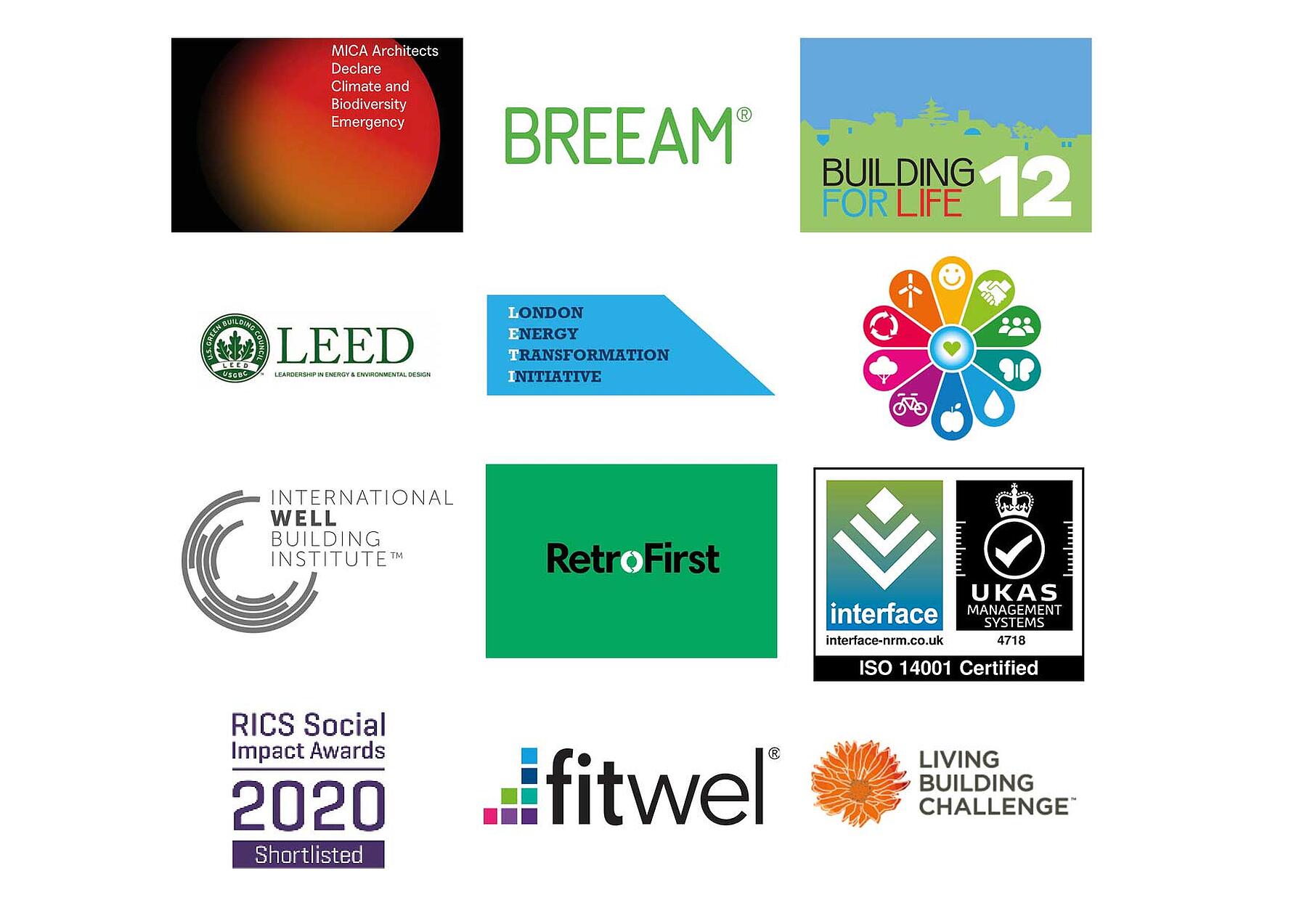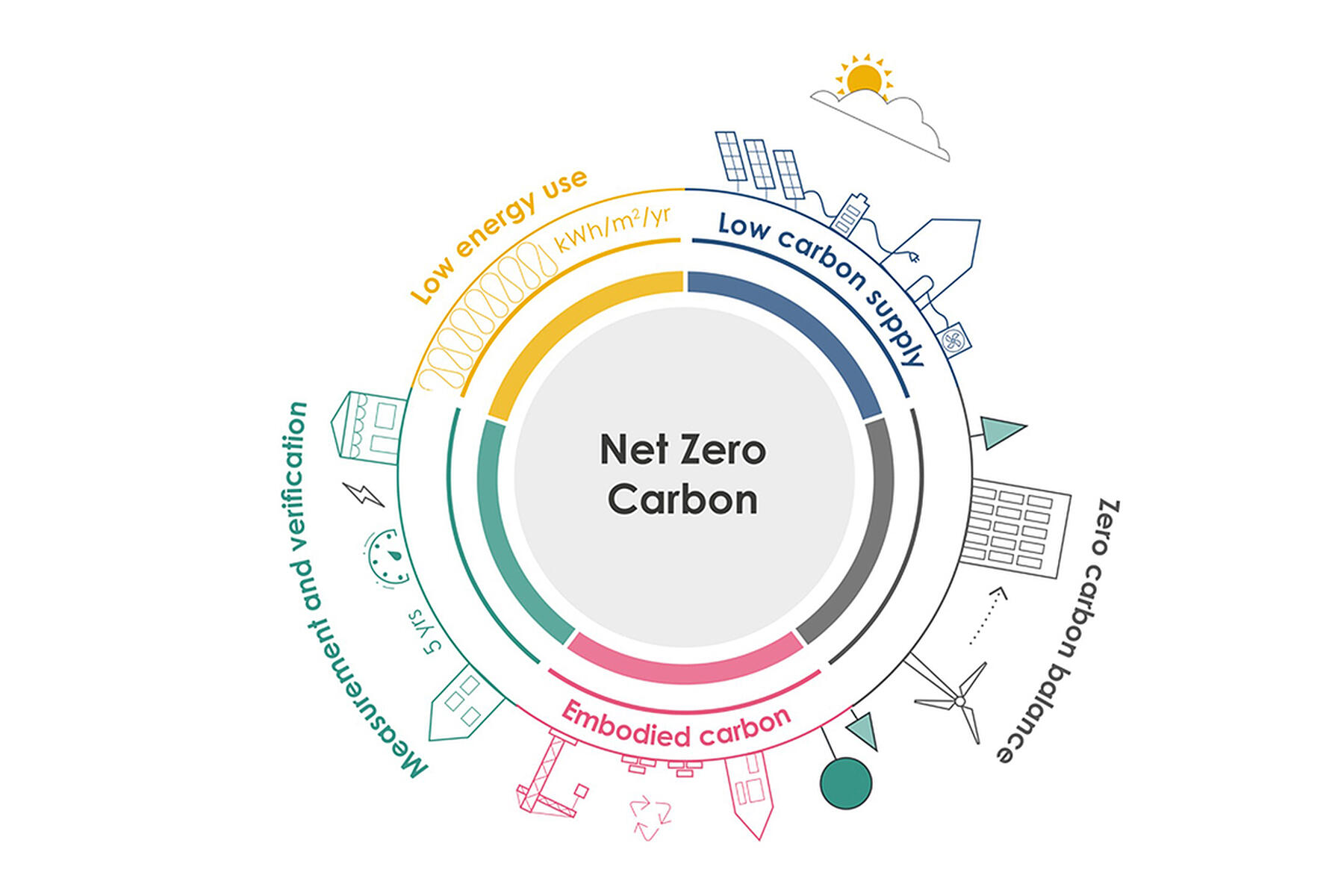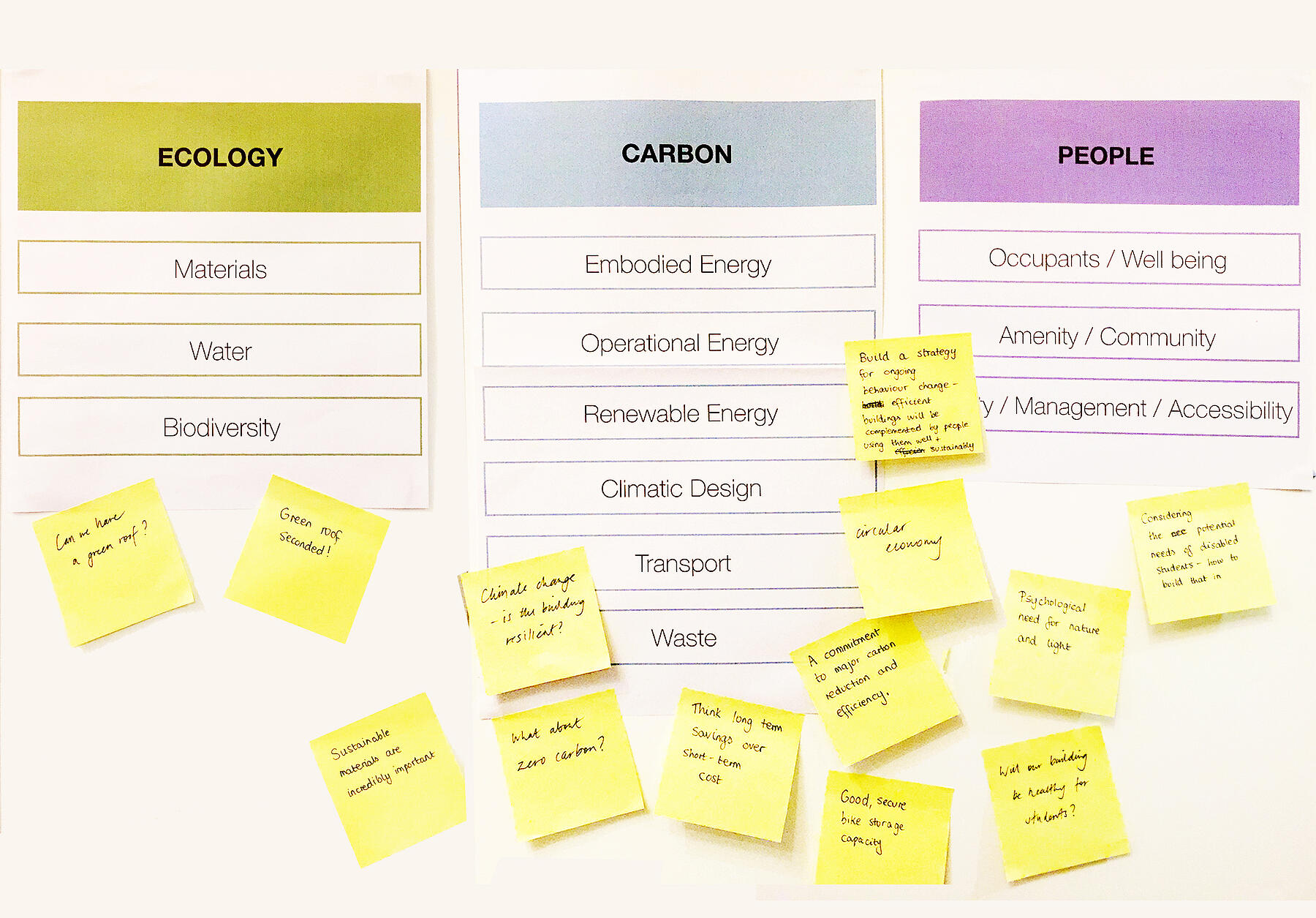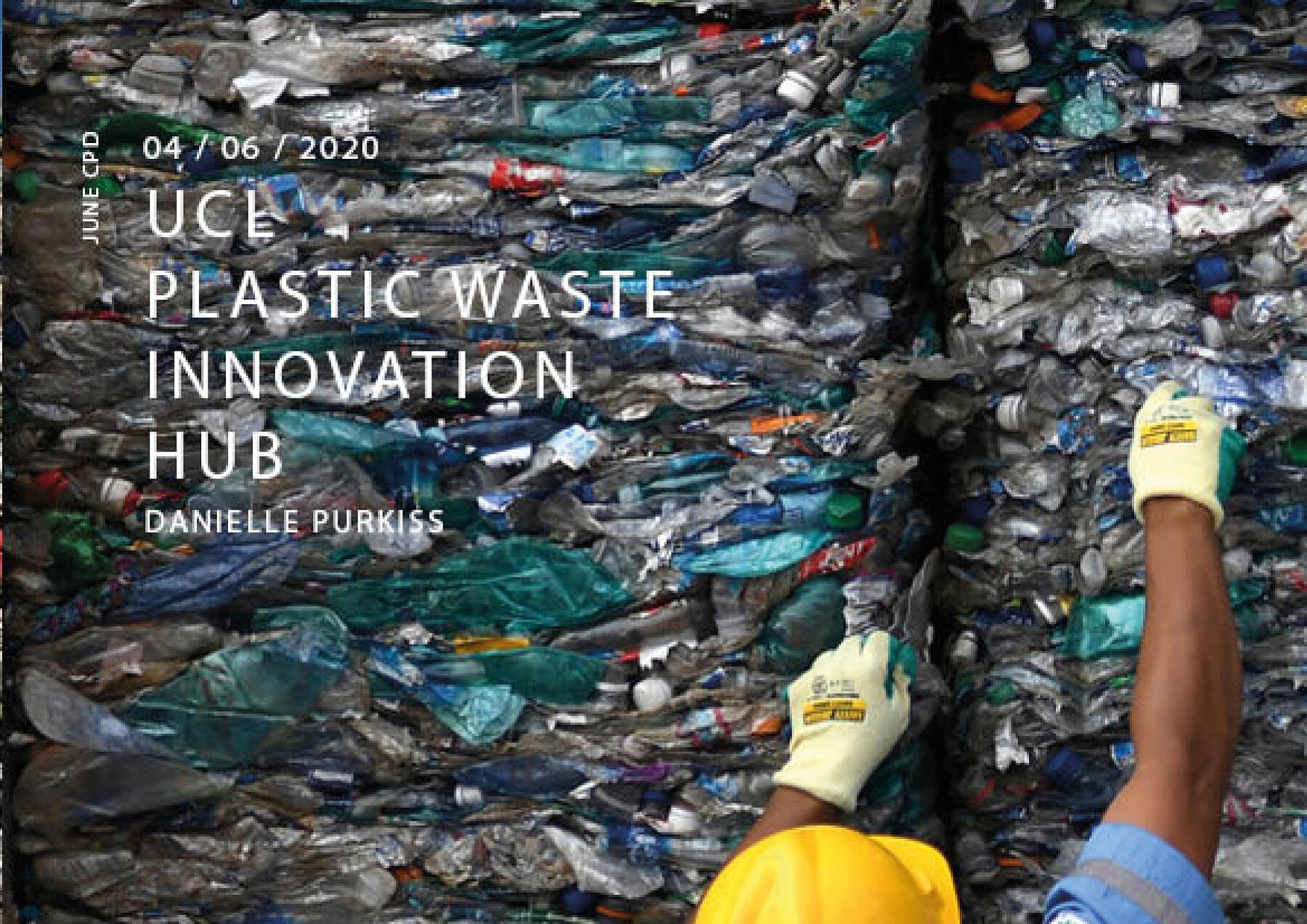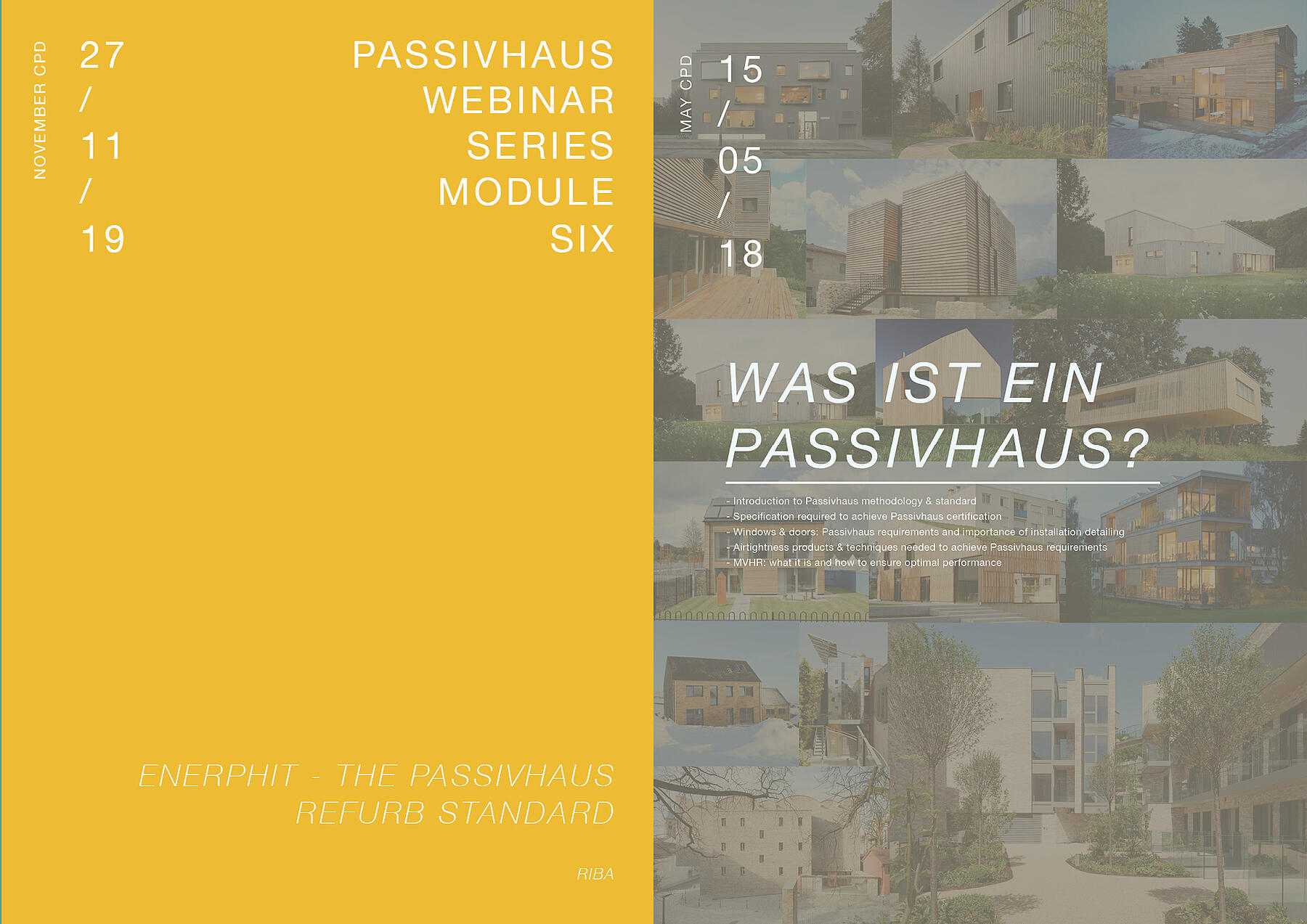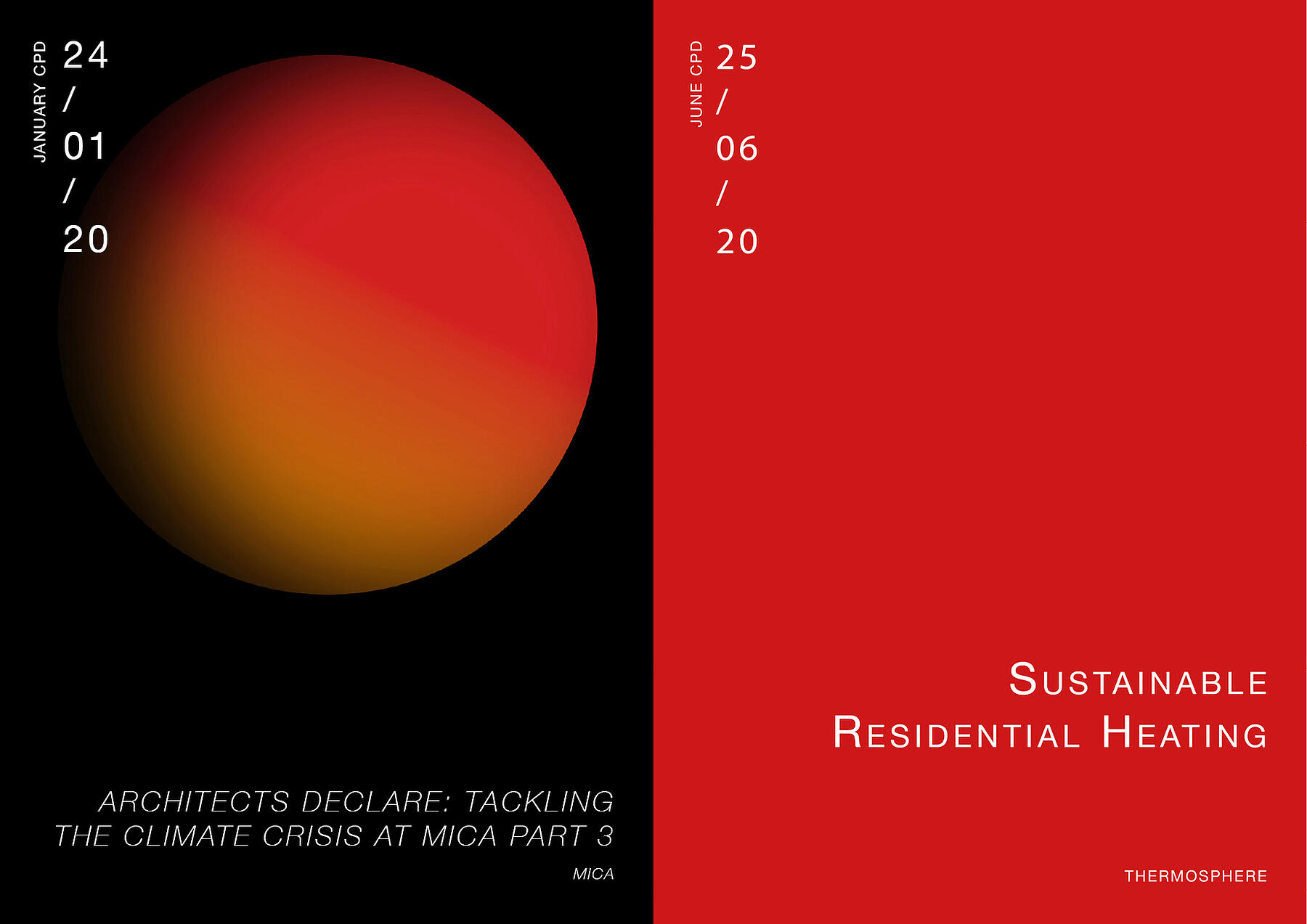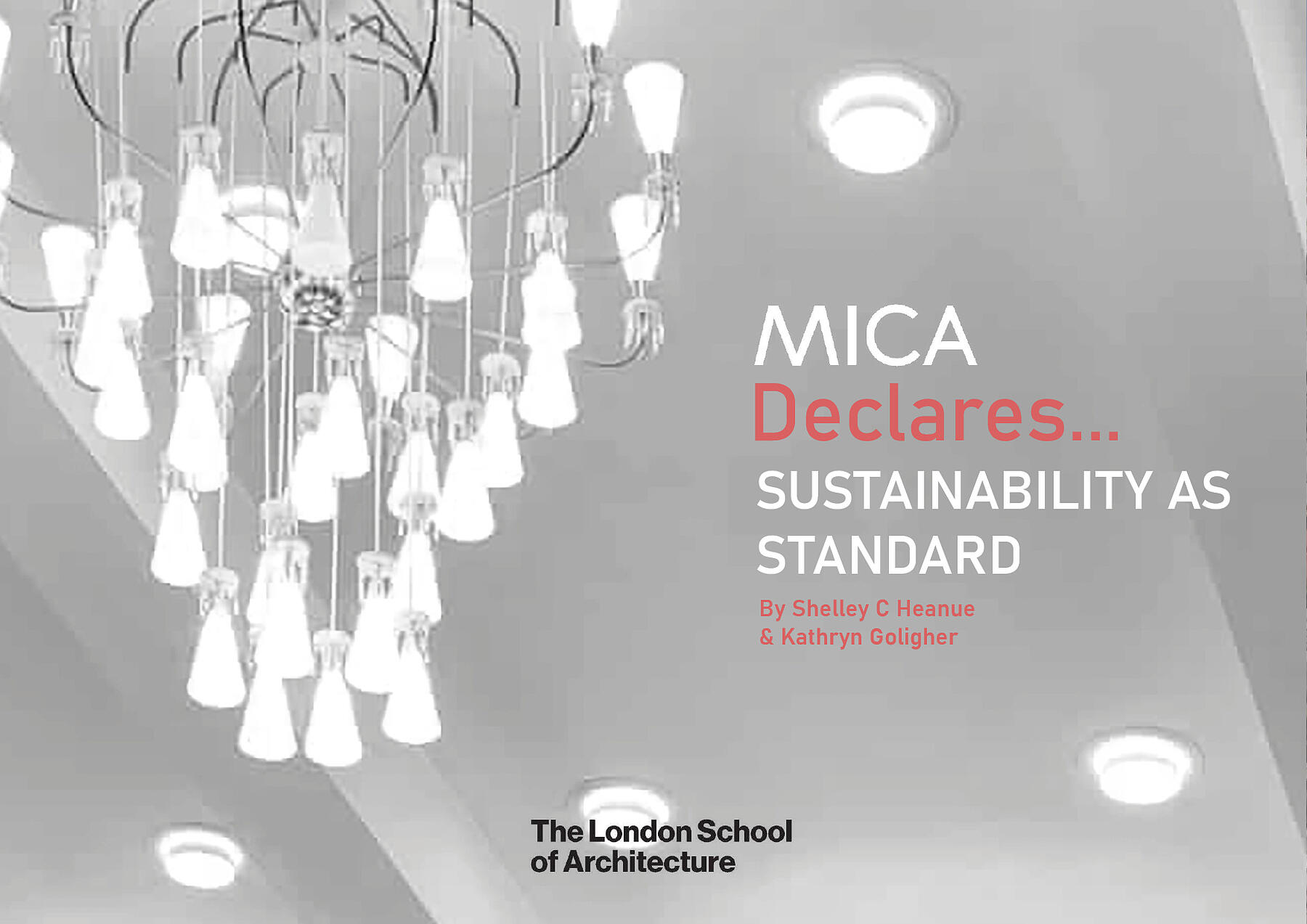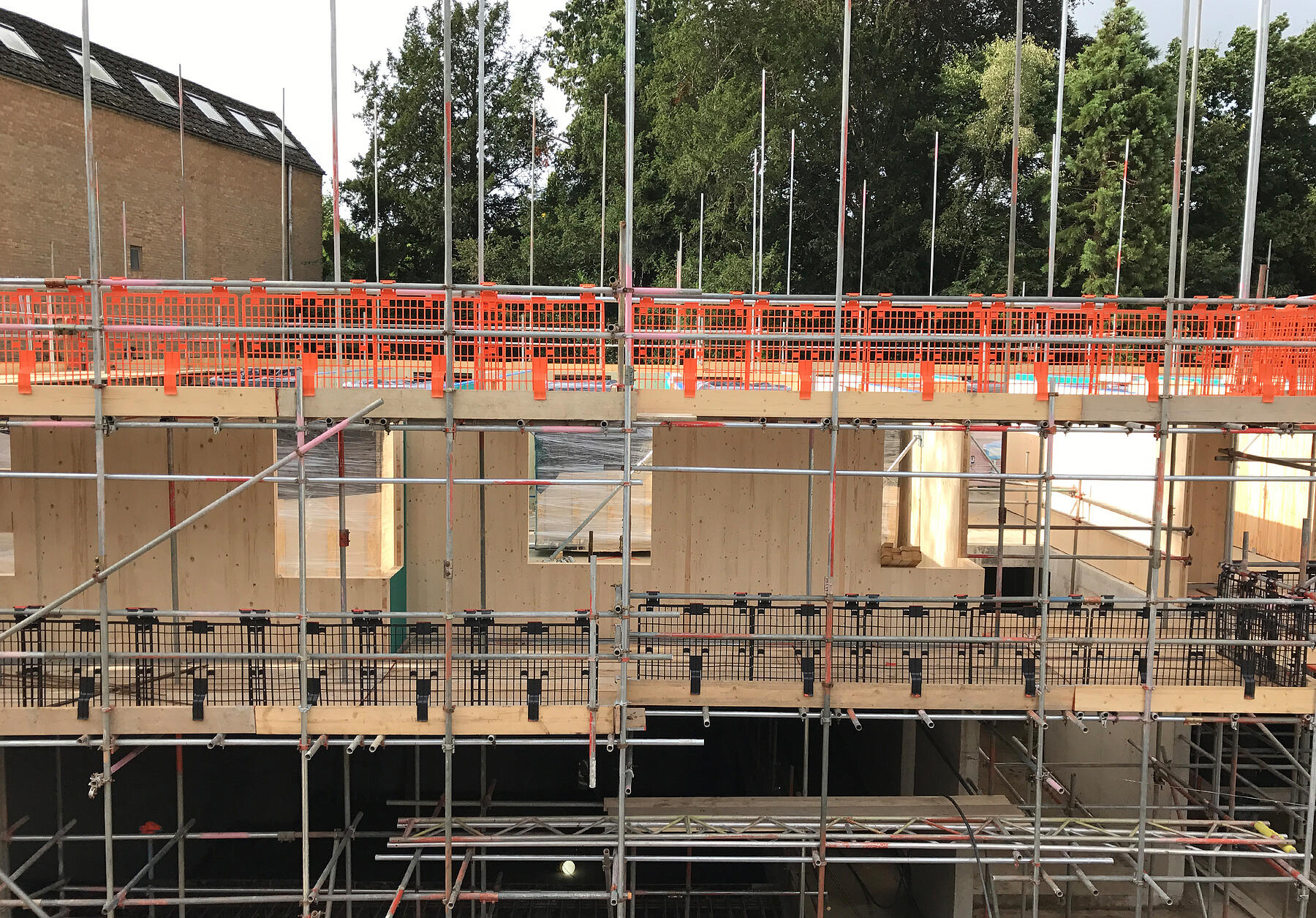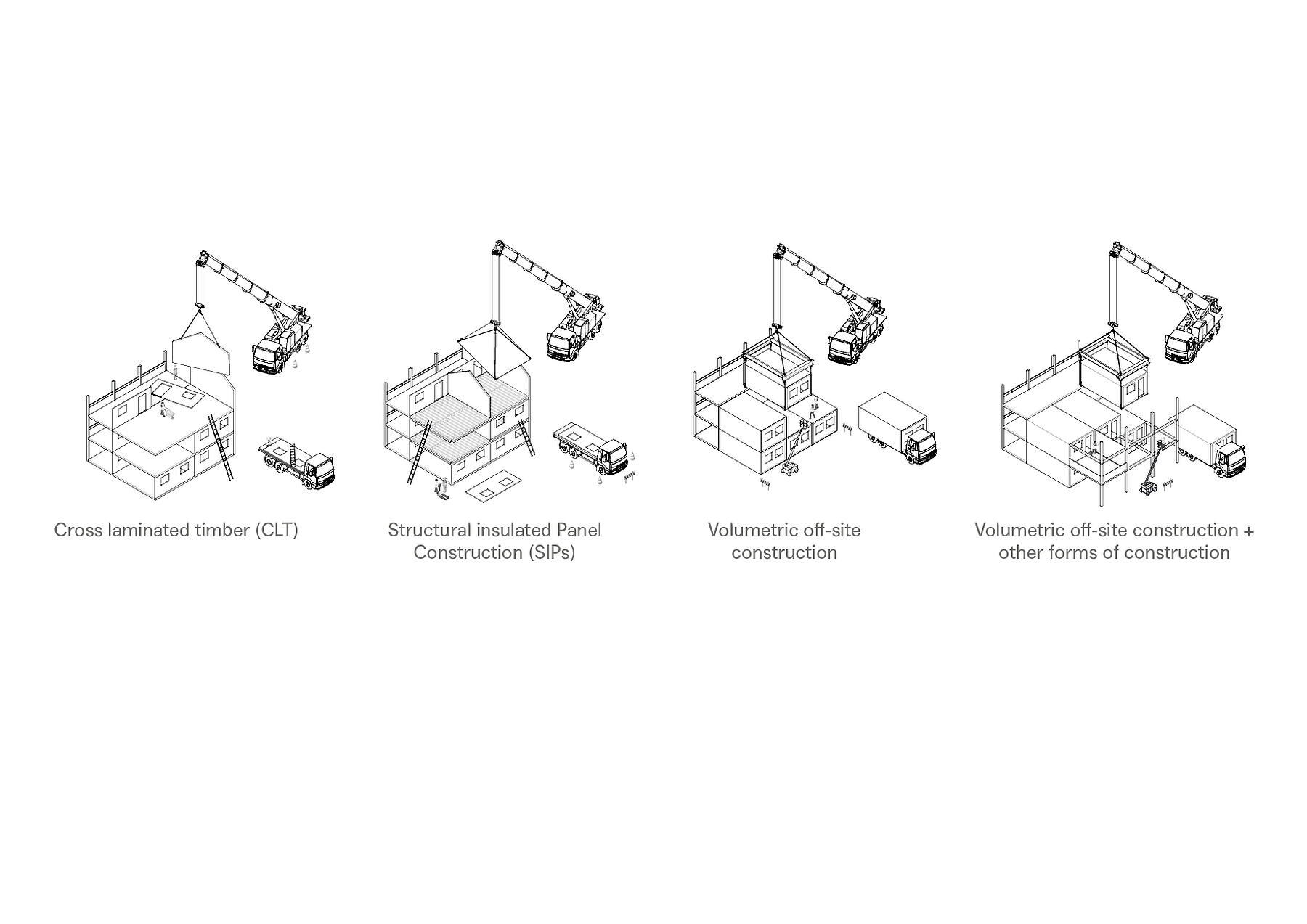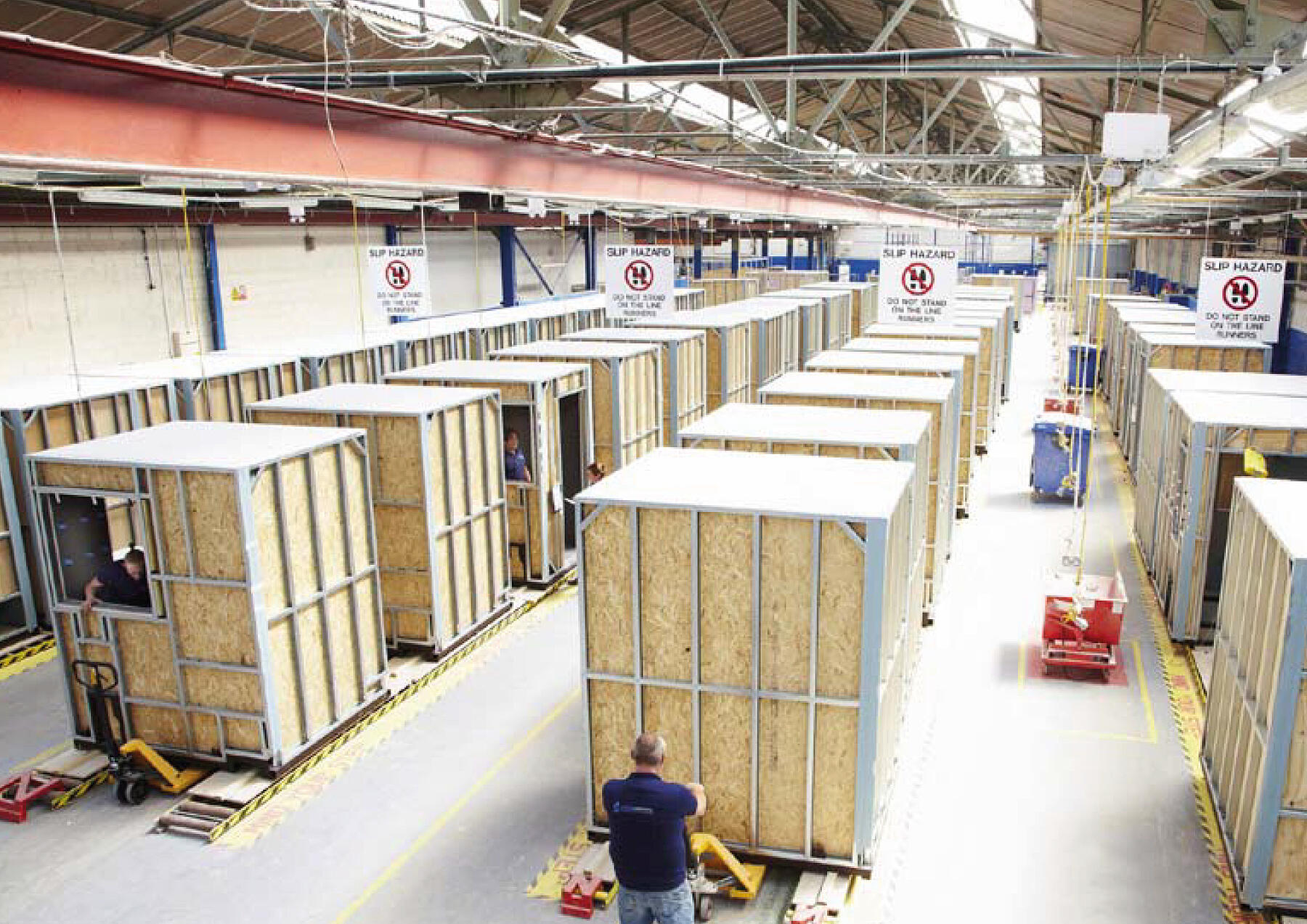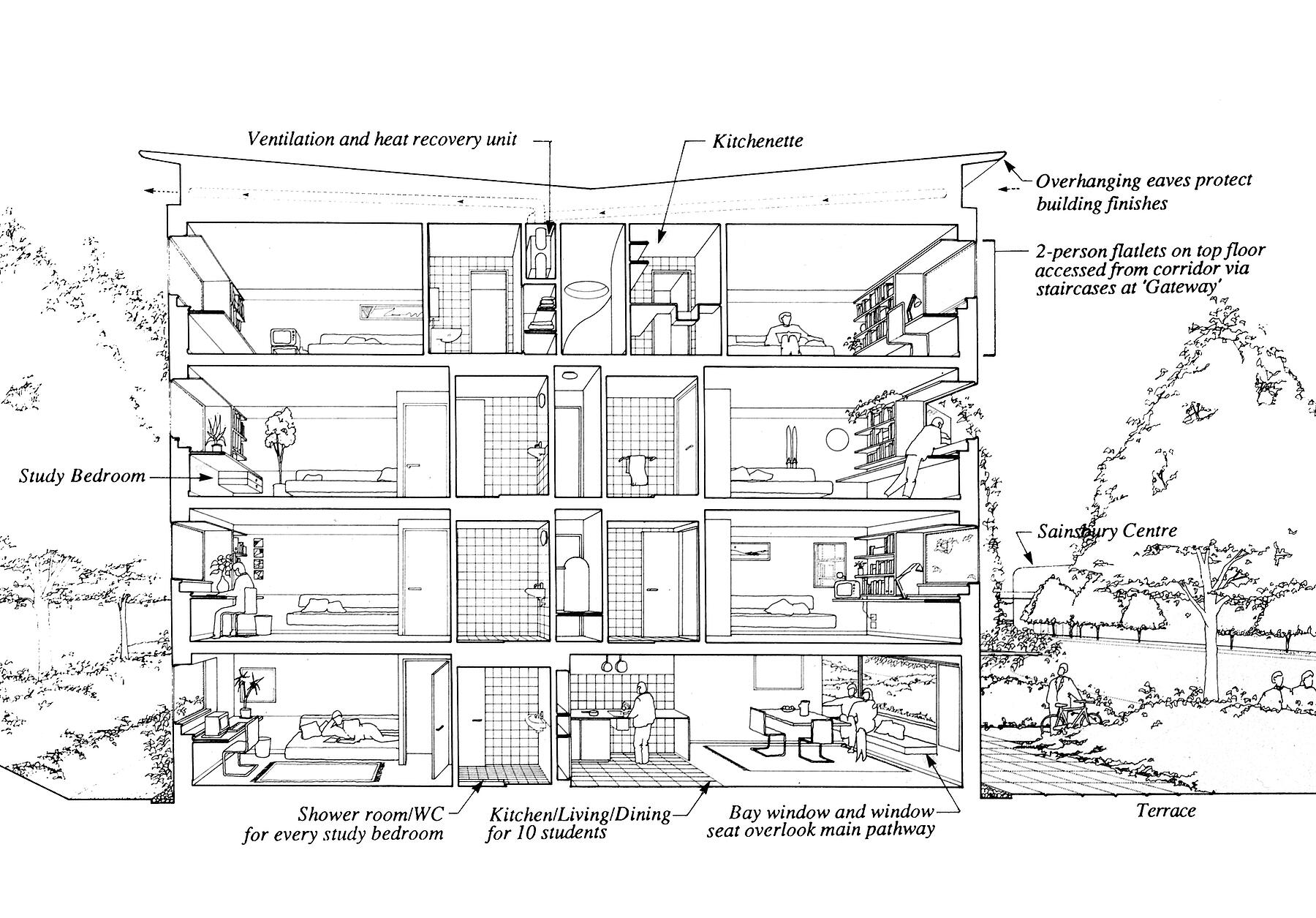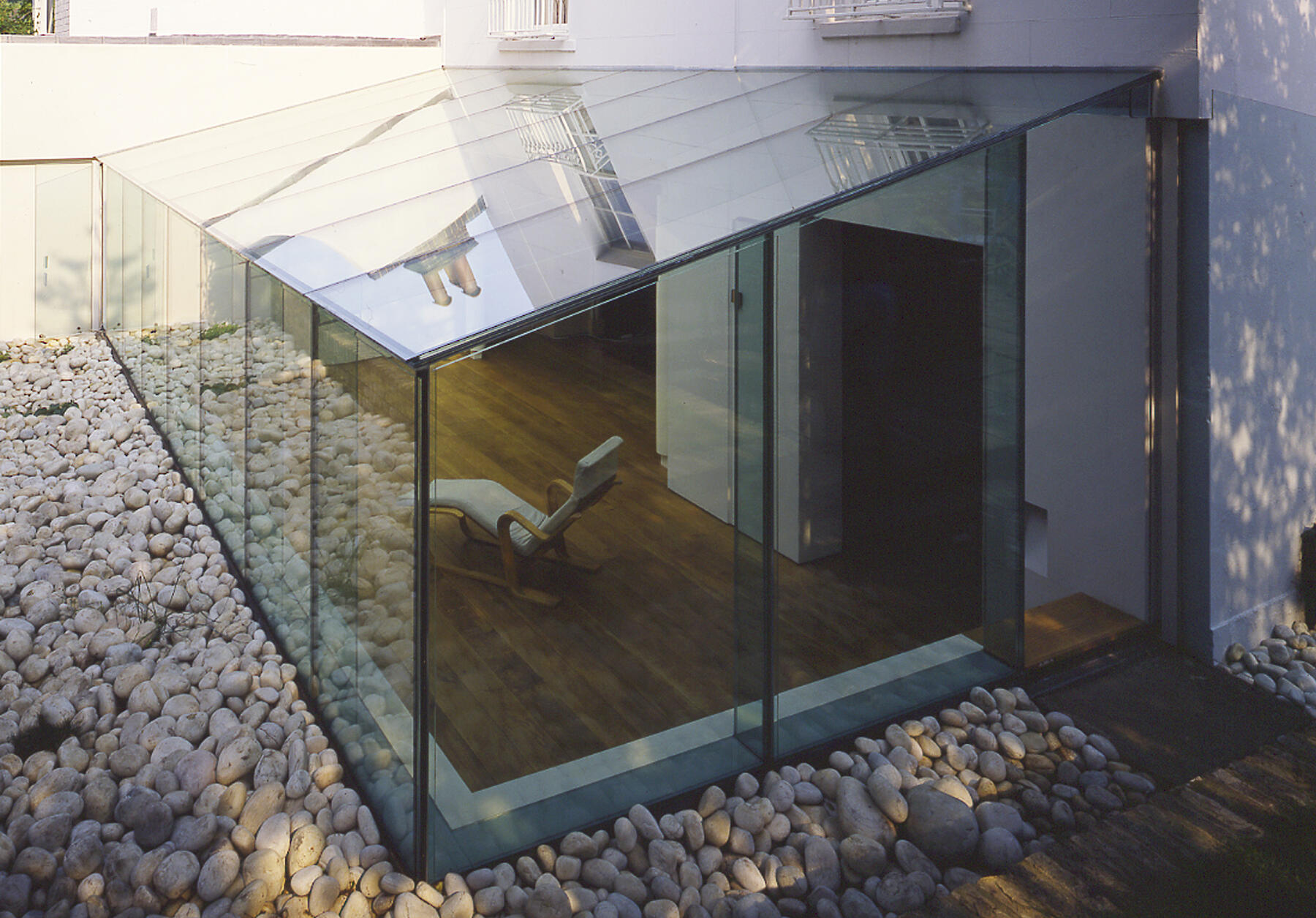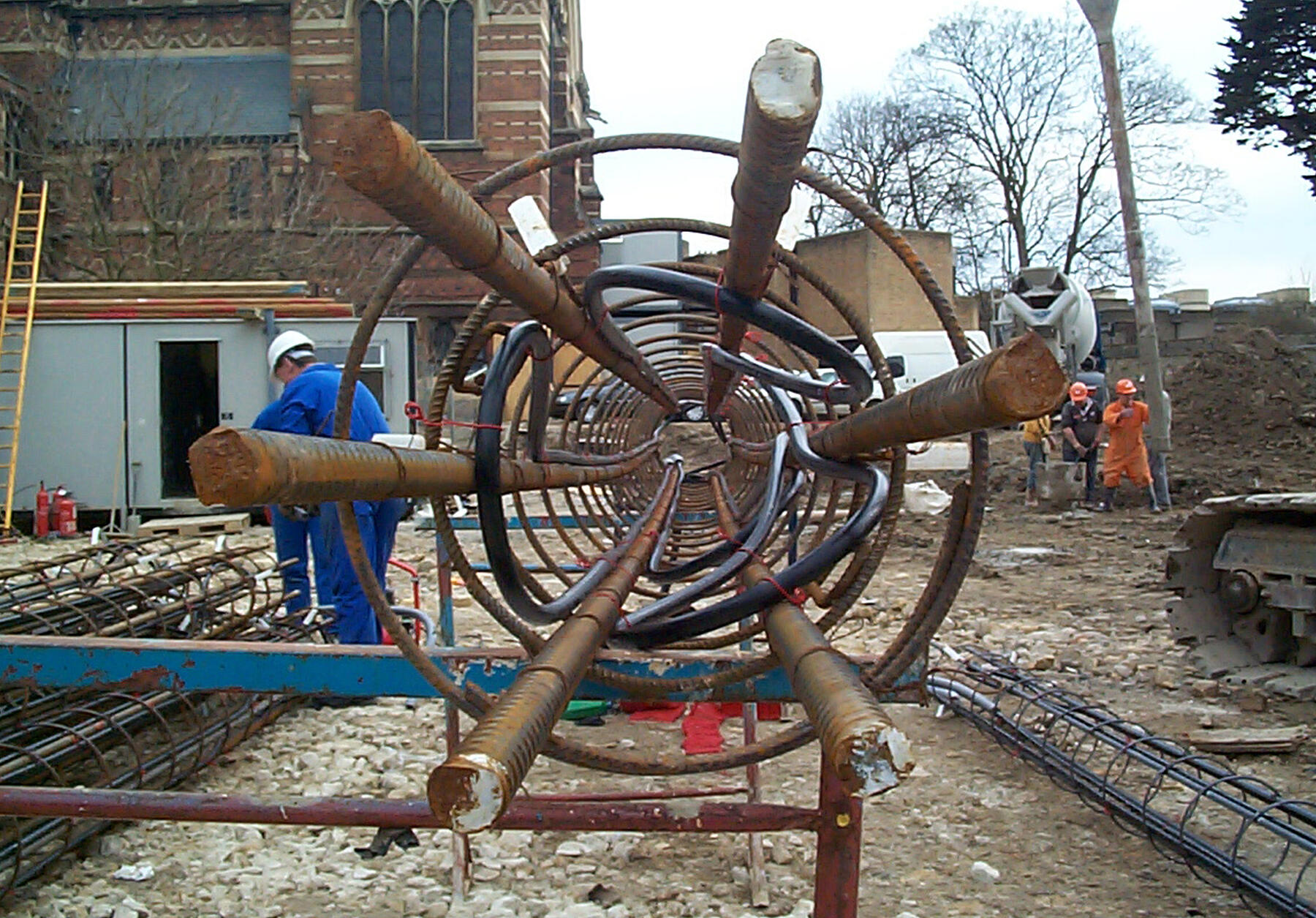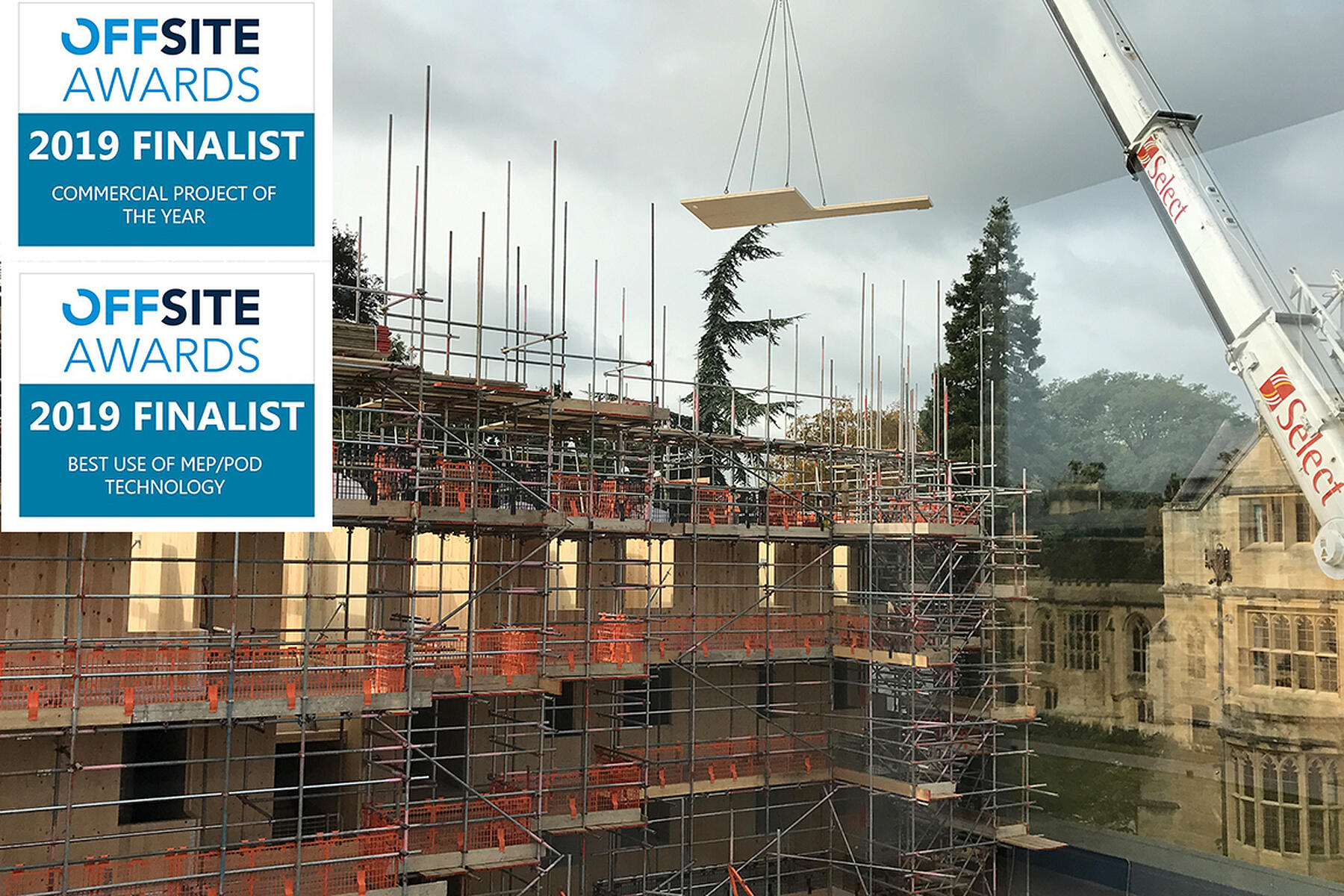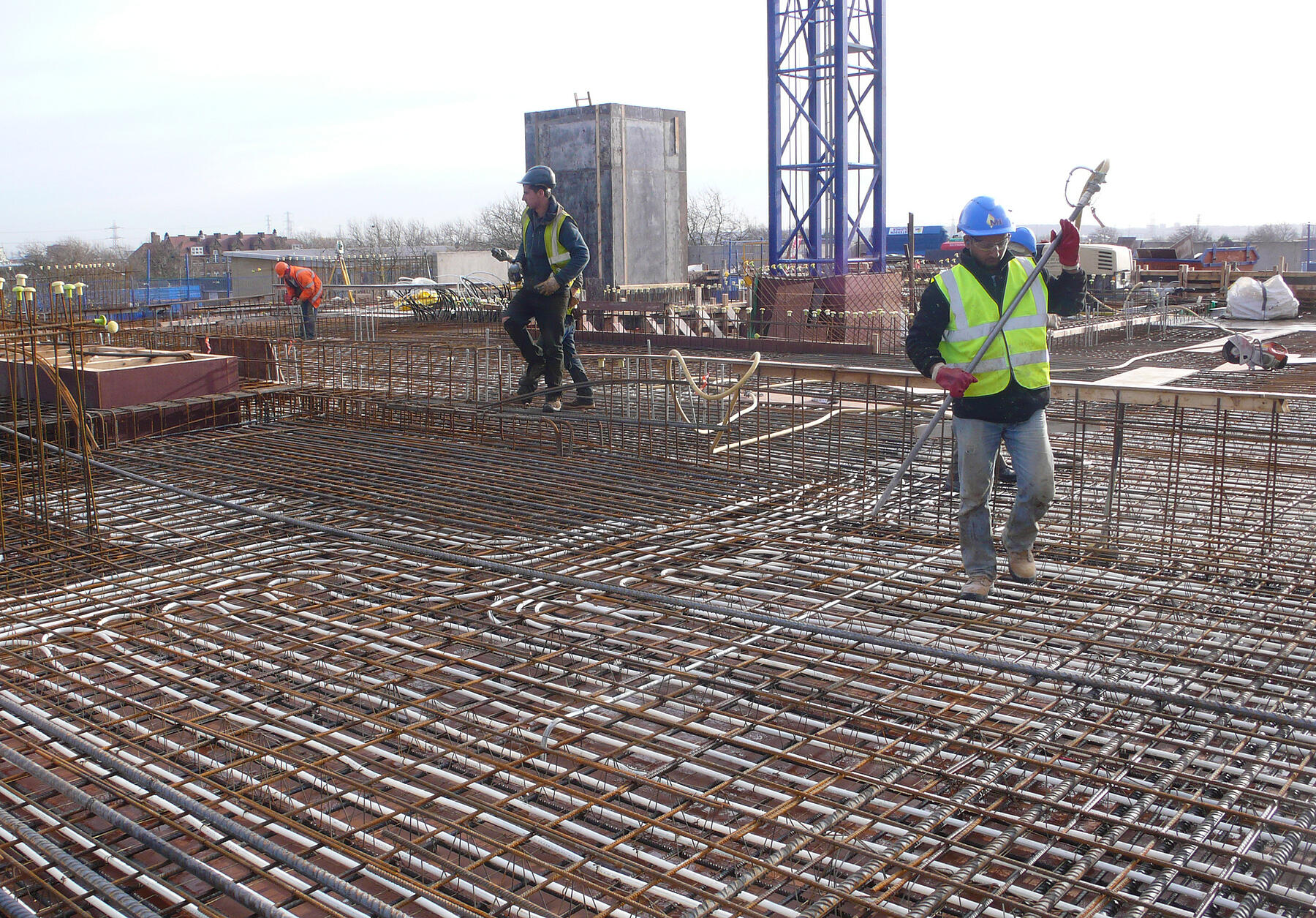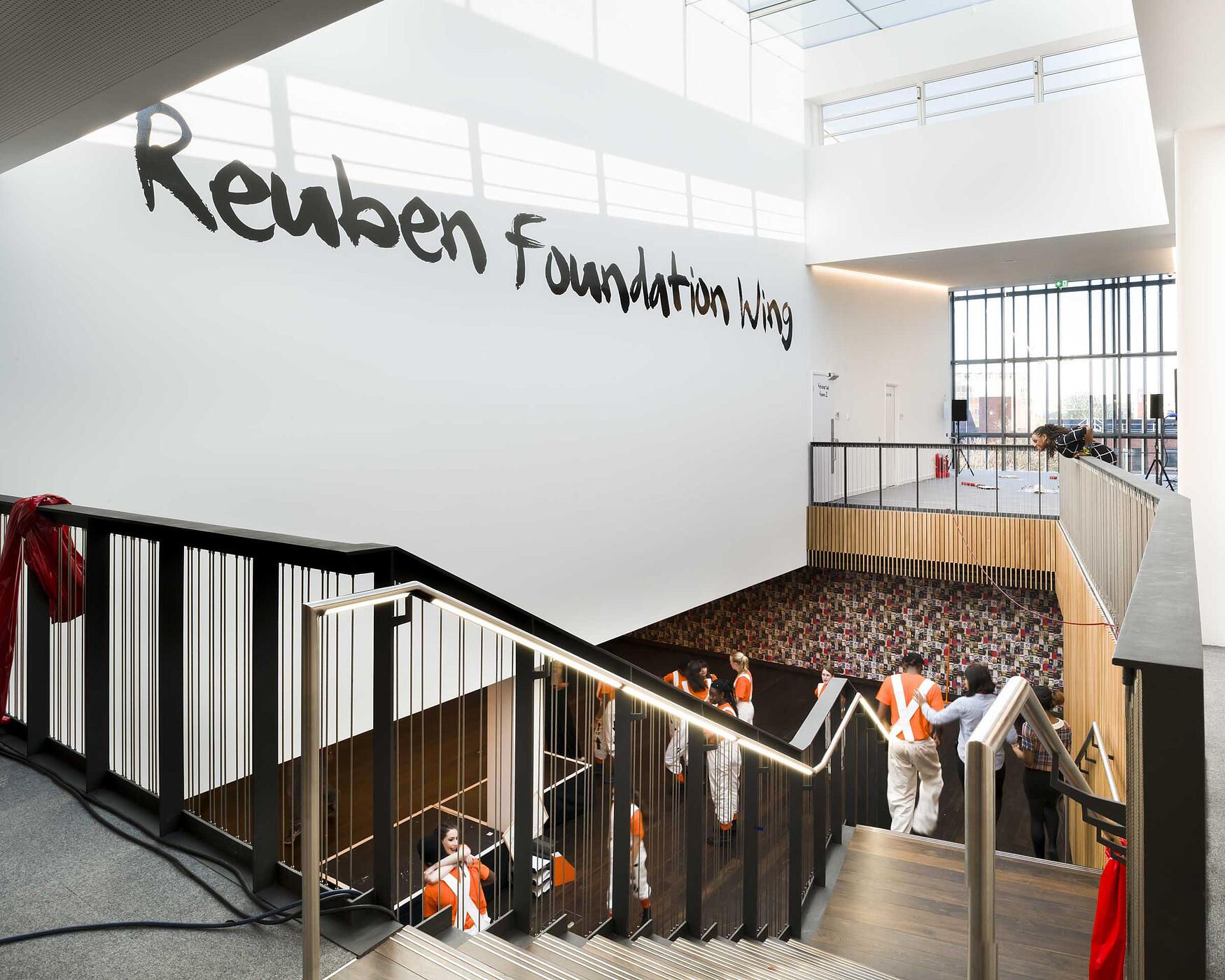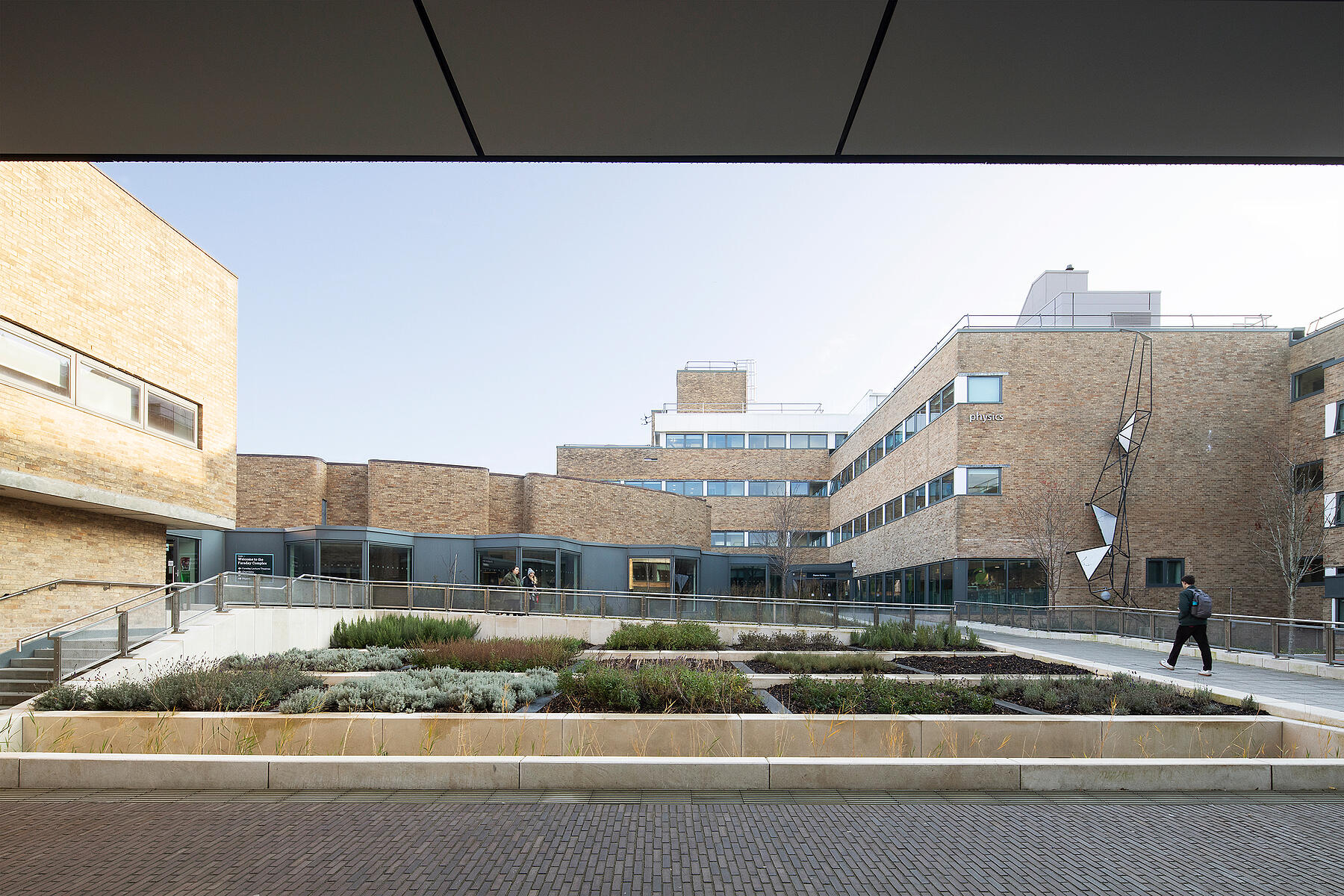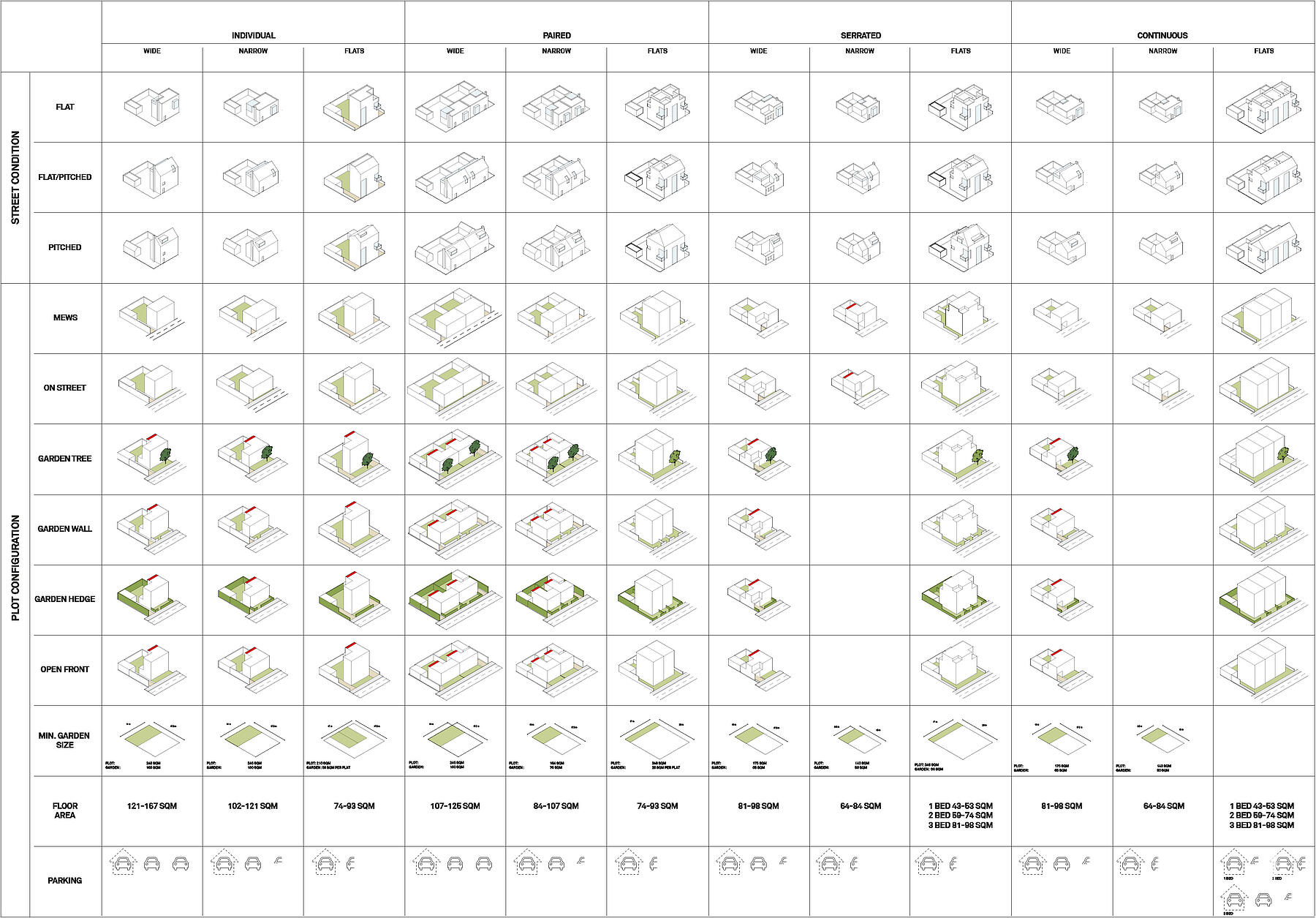Climate
Our commitment to environmental design has developed and strengthened over 40 years of practice employing fully integrated design strategies where low energy and sustainability are inherent to everything we design.
Our long history of designing sustainably was developed as Rick Mather Architects and is followed through in the ethos of MICA but with even greater zeal as the climate crisis deepens. The practice has delivered some of the most sustainable projects of their era, including the first passive house in Canada, exemplary student accommodation and the largest Passivhaus scheme in the UK, designed for a local authority.
We committed to Architects Declare in 2019, we have signed up to the RIBA 2030 Challenge and will use the RIBA 2030 benchmarks in working with collaborators and suppliers. We follow London Energy Transformation Initiative (LETI) guidance.
Our staff are active in the environmental debate and we host regular office-wide discussions on regenerative design.
We have taken this opportunity to reassess and publicise our commitment to reducing our impact on the environments, and demonstrate how we are taking action against these pledges below.
MICA has signed up to RIBA 2030 Challenge, which gives us a clear format to measure progress while also increasing the reach of this ambitious work to inspire clients. We will use the RIBA 2030 benchmarks to challenge all collaborators and suppliers.
MICA hosts active office-wide advocacy on regenerative design carried out by the leadership. We follow London Energy Transformation Initiative (LETI) guidance to power home the messages about improving building regulations, promote our commitment to the RIBA 2030 widely. We encourage our staff to be active and lobby our representatives on environmental matters.
We are delighted that the major industry awards have recently evolved to emphasise the environment and social value. The practice has had internal evaluations of our sustainability standards independent of third party verification since the early 1990s, and we have started to showcase these metrics on our website.
MICA has already benchmarked the operational energy of all projects, and we commit to showcasing this through online databases to share information their environmental performance for wider benefit. We will work to continually improve our internal and external knowledge sharing with design team collaborators. Our in-house Certified Passivhaus Designer augments the working knowledge of all project teams.
MICA will build on our strong, clear and impactful aspirations to positively mitigate climate breakdown. We use the principles of the RIBA 2030 challenge to evaluate all new projects in a structured, transparent and comparable process, reviewed on an annual basis. We will encourage our clients to adopt this approach through demonstrating value on completed projects.
We have a strong track record in reimagining and repurposing existing structures to enhance their lifespan, while improving their energy performance and preserving the embodied carbon. MICA will continue to advocate effective existing building adaptative reuse to meet project briefs and demonstrate viability in collaboration with the quantity surveyor, taking into account whole-life carbon as a key metric.
MICA always encourages clients to choose life cycle costing, whole life carbon modelling and post occupancy evaluation for all projects, to reduce both embodied and operational resource use. We will design with reference to the LETI Embodied Carbon Primer, and use low and zero carbon materials wherever possible.
MICA will focus continuing professional development (CPD) on regenerative design and ensure all CPD addresses the need to achieve net zero greenhouse gas emissions. We have doubled our CPD on environmental design beyond the requirement minimum, and continually strive for ways that our designs can better regenerate the environments that they inhabit through research of new methods.
We build on long histories of collaboration: our best engineers have worked with us for up to 25 years and continue to offer innovative design solutions. We will also build on our relationships with contractors and invite them to educate us on the elements of waste generated on site that can be designed out at the start of the process.
MICA is strongly committed to the sustainability principles enshrined in the RIBA Code of Conduct, and will continue to focus our efforts on shifting to low embodied carbon materials. We will also enhance our office materials selection to clearly record and identify materials which are low in embodied carbon.
All our architects work closely with all consultants, contractors and sub-contractors, emphasising the benefits of early and focused collaboration, to discuss material options, structural solutions including off-site technologies, waste mitigation strategies to target zero construction waste to landfill and support circular economy considerations.
This manifesto is the result of a yearlong process since committing to the Architects Declare Manifesto and is borne out of full office participation: the process stared with information conversations instigated by some of our more junior members of staff, and evolved into a series of round-table workshops hosted both digitally and physically over the transition to remote working as the pandemic hit. Since then a core team have worked to shape our commitments into a working manifesto, which is already applied to all our current projects and will be reviewed annually. We do not have a “sustainability group” within MICA: all our staff are deeply committed to creating architecture that improves the environment and moving building construction towards a net zero carbon future.
Below highlights a selection of our key sustainable projects across a range of sectors:
Constable Terrace, University of East Anglia 1993
Passive design and prefabrication
All Glass Extension, Hoffman House 1992
Pioneering use of structural glass in the UK
Sloane Robinson, Keble College 2002
Pioneering use of ground source heat pumps within pile encasements
Lyric Theatre, London Borough of Hammersmith and Fulham 2016
BREEAM Excellent certified and Julie’s Bicycle National Award
Spine, Lancaster University 2018
MICA completed a BREEAM Infrastructure pilot project targeting highest levels of environmental excellence.
Gilston Park Estate
Modular housing typologies
